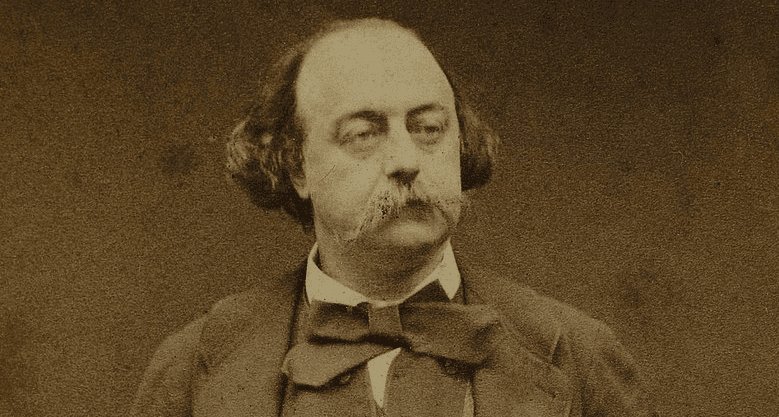What’s Madame Bovary’s first name?
Last Updated:
Content
Madame Bovary, Gustave Flaubert’s masterpiece published in 1857, delves into the tumultuous life of Emma Bovary. Married to a country doctor named Charles, her passions and desires form the heart of the work.
Recognized as a pillar of French literature, the novel caused a notable scandal due to its realistic approach and the questions of immorality it raises. But have you ever paid attention to Madame Bovary’s first name?
Far from being trivial, this information reveals valuable clues about the key character and the very essence of Flaubert’s novel. This article examines why Emma’s first name is so important, how Flaubert chose it and the impact it has had on the story and reputation of Madame Bovary.
A first name that reveals personality
Origin and meaning of the name
Gustave Flaubert’s choice of Emma Bovary’s first name was no accident. Initially, the heroine was called Marie in the first version, a common and pious name for the time.
Flaubert eventually opted for Emma, a less common and more contemporary name, derived from the Germanic word ermin, which translates as great, powerful or universal. This choice reveals a boundless ambition, a desire to transcend one’s own condition, but also a quest for the absolute and perfection.
How does the name reflect Madame Bovary’s character traits?
Emma Bovary is a complex, paradoxical character in perpetual search of identity. Her name reflects this multitude of dimensions and states of mind.
Emma is dreamy, passionate and romantic, but also melancholy, dissatisfied, capricious, carefree and desperate. Her name becomes the symbol of her emancipation and struggle against a stifling patriarchal society.
Emma aspires to free herself from her traditional role as wife and mother, to live her own adventures and express her true nature. Although those around her call her Madame Bovary, she remains Emma at heart. Her name marks her quest for freedom and uniqueness, while underlining her personal tragedy and loneliness.
The impact of first names on literary works
The role of first names in narrative and character development
Emma Bovary’s first name plays an essential role in her narrative and character development. Gustave Flaubert uses it as a focusing tool, enabling the reader to see the world through Emma’s eyes and feel her emotions.
For example, in a striking scene where Emma says to herself: I have a lover! a lover! savoring this revelation like a second youth (Part II, chapter 9), her first name conveys the intensity of her feelings.
The first name also marks the different phases of Emma’s life, underlining her passage from innocence to decay, through expressions such as Emma jeune fille (Part I, chapter 7), Emma malade (Part II, chapter 15), and Emma ruinée (Part III, chapter 7).
It is also used to distinguish Emma from other characters, often referred to by their surname or title, underlining her singularity, but also her isolation and lack of understanding of others.
First-name symbolism in Flaubert’s world
Emma Bovary’s first name is also rich in symbolism. On the one hand, Emma is the first name of Flaubert’s mother, a major source of inspiration for the novelist. On the other hand, it echoes female characters from English literature, such as Emma Woodhouse in Jane Austen’s Emma or Emma Haredale in Charles Dickens’ Barnaby Rudge, all of whom embody intelligence, independence and romanticism, in a desire to escape the social norms of their time.
What’s more, the name harks back to Greek mythology, where Emmeline, a diminutive of Emma meaning lovable, is a nymph beloved of the god Pan, who escapes by transforming herself into a vine, symbolizing the desire to escape reality and seek intoxication, fundamental characteristics of Emma Bovary.
Emma’s name therefore carries a depth of meaning that reveals the complexity and richness of Flaubert’s character and work.
The posterity of Madame Bovary’s first name
Madame Bovary’s first name in popular culture
The name Emma, associated with the famous character Emma Bovary, has left an indelible mark on popular culture, manifesting itself in a variety of artistic creations.
The 1949 film Madame Bovary, directed by Vincente Minnelli and starring Jennifer Jones in the title role, drew on Flaubert’s trial to explore Emma’s romantic and tragic character.
The character also inspired Matmatah’s song Emma, which evokes the loneliness and despair of a contemporary woman.
Philippe Delerm’s novel La Première Gorgée de bière et autres plaisirs minuscules, on the other hand, reinvents Emma Bovary’s life in a happy light. Today, the name Emma symbolizes the female condition, the quest for love and the desire for rebellion.
The influence of the first name on adaptations and interpretations of the work
The scope of the first name Emma extends to the various adaptations and interpretations of Flaubert’s Madame Bovary. The 2014 film Gemma Bovery, directed by Anne Fontaine and starring Gemma Arterton, transposes Emma Bovary to contemporary Normandy, underscoring the power of the first name in the title.
Conversely, André Comte-Sponville’s 1992 novel Madame Bovary, explores a philosophical reflection on the work, juxtaposing the first name Emma with the surname Bovary to underscore Emma’s identity conflict. The first name Emma is thus a key to understanding the richness and universality of the character created by Flaubert.
This article has revealed Madame Bovary’s first name, Emma, and its crucial importance for understanding the central character and Flaubert’s novel as a whole. The name Emma reveals the heroine’s complex personality, desires, contradictions and inescapable destiny. This name carries a wealth of historical, cultural and symbolic significance that enriches our understanding of Flaubert’s work and its adaptations.
You may also be interested in
literature

What's Madame Bovary's first name?
Answer
Gustave Flaubert's Madame Bovary (1857) recounts the quest of Emma Bovary, married to a provincial doctor, to escape boredom through adventure and excessive luxury.